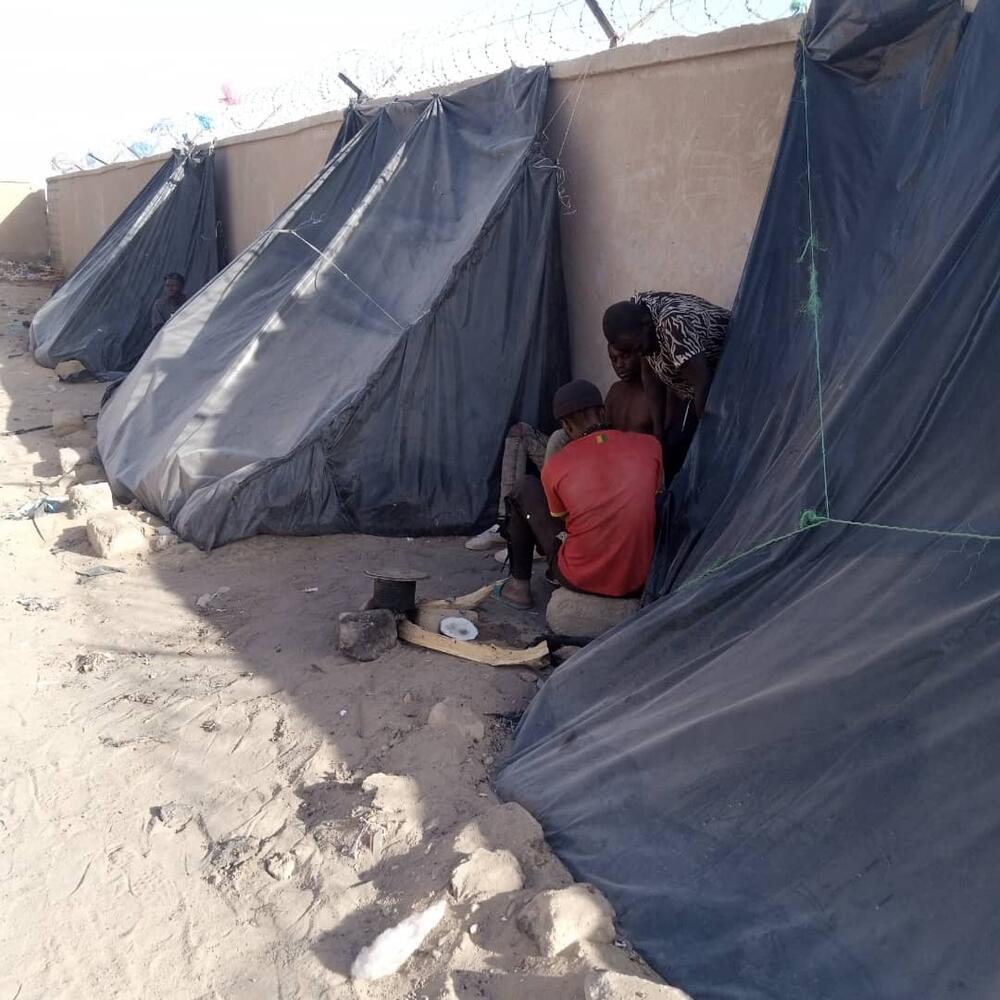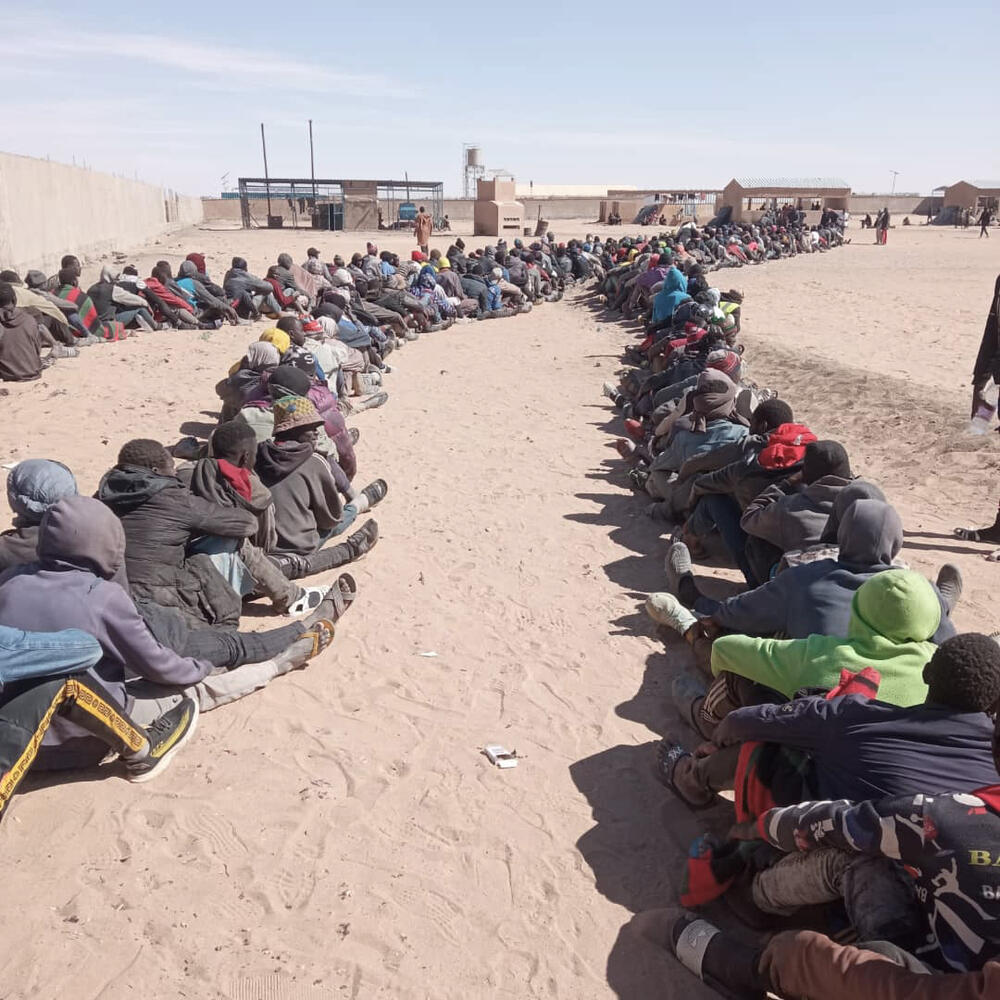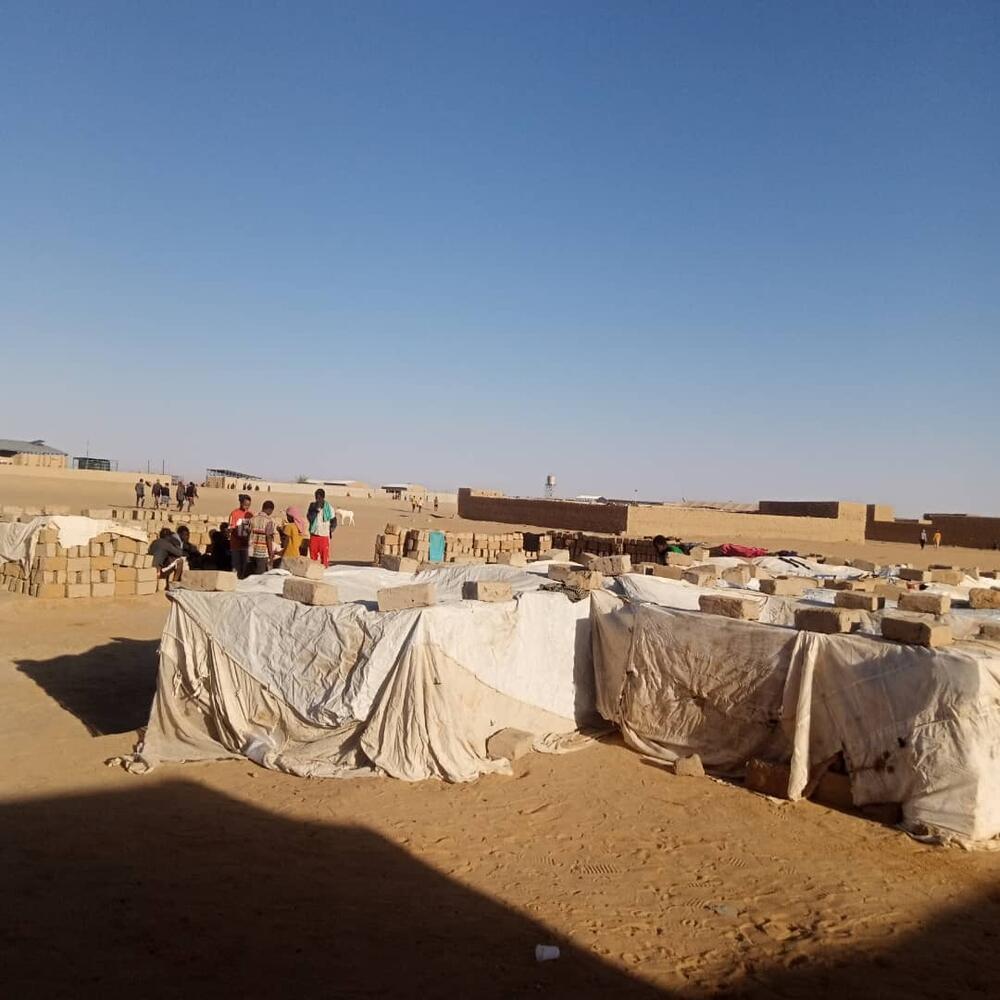MSF denounces the severe lack of shelter and support for migrants abandoned in Assamaka
16 March 2023
Niamey -Thousands of migrants deported from Algeria and abandoned in the desert of northern Niger are stranded without access to shelter, health care, protection, and basic necessities, the international medical humanitarian organization Doctors Without Borders/Médecins Sans Frontières (MSF) said today. Between January 11 and March 3, 2023, 4,677 migrants arrived into Assamaka—a town in northern Niger’s Agadez region—on foot after being deported from Algeria and stranded in the desert. But fewer than 15 percent were able to access shelter or protection when they arrived. MSF calls on the Economic Community of West African States (ECOWAS) to immediately provide protection for people abandoned in extremely precarious conditions in Assamaka.
The Integrated Health Centre (IHC) in Assamaka supported by MSF is overwhelmed as thousands of migrants seek shelter in the facility. "The situation is worrying,” said Schemssa Kimana, MSF’s field coordinator for Agadez. “Today, the health centre that we support in Assamaka is overflowing. The majority of people who have recently arrived in Assamaka have settled in the IHC compound, due to a lack of space in the transit centre."
According to Kimana, there are people sleeping in every corner of the facility. Some have set up makeshift tents at the entrance or in the courtyard. Others are camping in front of the maternity ward, on the roof, or in the waste area. MSF staff said the situation is unprecedented.
"The health centre we support in Assamaka is overflowing."
Temperatures in Assamaka—an arid town—can reach 48 degrees Celsius, so people seek refuge from the heat wherever they can find it. This has led people to sleep in very unhygienic areas, such as waste areas, which can expose them to health risks such as contagious diseases and skin infections.
The lack of available shelter forcing people to sleep in these conditions is appalling, MSF said. This situation is now an emergency—it is untenable for anyone to remain living in these conditions.
"We are worried because no one gives us an answer as to when we will return back to our country of origin,” a migrant from Cameroon told MSF. “We don't know when we will leave Assamaka. It's like being in an open-air prison. For the meals, what we receive is very badly prepared because there is more sand in it than food. It makes us sick and gives us diarrhoea and stomach aches. The rations are so minimal that we don’t eat enough. We live at the IHC in sheds that were built for the patients during COVID. During the night, the police patrol the village to catch migrants who may be scattered in the village and send us back to the IHC.”
"As a medical humanitarian organisation, it is our duty to highlight the visible gap in assistance for people-including children."
"This is an unparalleled situation that requires an urgent humanitarian response from the ECOWAS, from where the majority of these people are from,” said Jamal Mrrouch, MSF Head of Mission in Niger. “As a medical humanitarian organisation, it is our duty to highlight the visible gap in assistance for people—including children—who are in a precarious situation in the Assamaka desert, and the risks to their health.”
MSF has worked in Agadez region since 2017. MSF distributes non-food items, supports the Integrated Health Centre to provide free primary health care consultations and refer critical cases to Agadez town—several hundred kilometres away—and offers logistical support.


